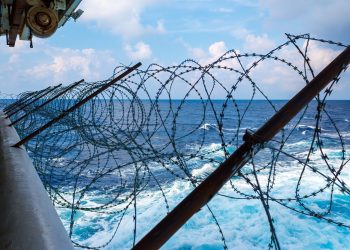The path towards decarbonization requires a lot of effort and compliance with strict environmental rules and IMO’s ambitious goals. Many will be the changes; we can’t expect a new era with same attitude. In that regard, we may see transformation in the way ships are powered and propel. The key question is how people onboard are ready for the future. As such, in our Sea Sense column this time, in association with The North of England P&I Club, we ask global experts to make their assessment into the following:
To meet the IMO’s target on greenhouse gas emissions, there is likely to be a seismic shift in how vessels are powered and propelled. Will the next generation of seafarer be properly prepared for the ship of the future?

Iris Baguilat
President, Döhle Seafront Crewing (Manila), Inc.
YES.Seafarers are the lifeblood of shipping. But, as crucial as they are to the industry’s function in the world trade, the maritime’s land-based sector is the heart that drives them. Seafarers are resilient. For one, the Philippines has seen generations of changes in shipping from navigating to training, to which our seafarers have fully embraced and adapted to. What is crucial are the decision, protocols, and practices that we put in place – the IMO, itself, and the local and international governing bodies – to achieve the target depletion of greenhouse gas emissions among ships. As the manning capital of the world and a major source of livelihood to more than 500 thousand seafarers, the Filipino workforce will always be eager to contribute, train, and equip ourselves to qualify, and serve the industry as world-class inputs to this cause.

Bill Truelove
Managing Director, CSMART Training Center
YES. I think that the seafarers of Carnival Corporation & plc will be well prepared to safely operate our future fleet, in part, due to the significant investment that has been made in training and safety culture including the creation of the CSMART Academy. Further, experts within the Corporation, in consultation with IMO and other interlocutors, are developing the policy framework and identifying the training needs now to ensure the readiness and safety of our seafarers when these new technologies arrive. While the IMO STCW process will, over time, confirm the baseline competences; fleet leadership will ensure that robust training is provided to enable crew readiness to handle new fuels and technologies and their associated critical health and safety risks.

Alvin Forster
Loss Prevention Executive, The North of England P&I Club
A very hopeful and optimistic YES , but only if action is taken now. Marine engineering training and certification is still focussed on ‘motor’ and ‘steam’ and this needs to be revisited quickly. With the development of low-carbon and zero-carbon means of power and propulsion alongside the progress being made in autonomous vessel design, the traditional fossil fuel burning reciprocating diesel engine could see its ubiquity wane. But with so many potential solutions of various complexities likely to enter into use within the next 10 to 30 years, such as transitional LNG/LPG dual fuel engines, ammonia or hydrogen burning engines, fuel cells and wind assistance, the maritime sector faces a huge challenge in making sure the engineers of tomorrow receive the correct and relevant training. If STCW can’t keep pace, then the industry may need to take the lead.

Frantzeskos D. Kontos
DPA, Deputy Chief Operating Officer, Prime Marine
NO. The propulsion solutions that are currently under evaluation (LPG, Methane, Ammonia, Hydrogen, Fuel Cells to mention a few) introduce conceptual changes to vessels Main Engines and Diesel Generators, as well as Vessel’s modus operandi. Engineers that have previously serviced on LNG vessels will be the only ones with certain acquaintance with some of the engine types considered above (LPG, Ammonia, Methane). Most of the experts opinion converge that the path to de-carbonization will most probably involve a combination of the viable alternatives, thus the specialization and training of seafarers to each propulsion system will become a real challenge. Shipping companies have to be engaged into exhaustive training programs, in collaboration with Engine manufacturers, that will involve theoretical and hands-on training, whereas the onboard familiarization will necessitate an extensive, pre-defined, training and hand-over period.

Antonis Trakakis
Technical Director, Marine, RINA
NO, most probably will not. We have evidence that the courses in marine academies are not updated in accordance with the technology of machinery on board. The life of seaman traditionally attracted smart and adventurous people who have less appetite for college studies, equally for going deeper in technology. The priorities of an average seaman today focus on the operation and maintenance; seamen are less attracted to study the new regulations, and many cannot even adopt the spirit of those who address their safety on board, and only fill checklists. For the future, I think we need to rely on information technologies, allocating the task of machinery monitoring & troubleshooting ashore, thus providing more comfort to the crew, and allowing them to focus on safety and emergency response.































































